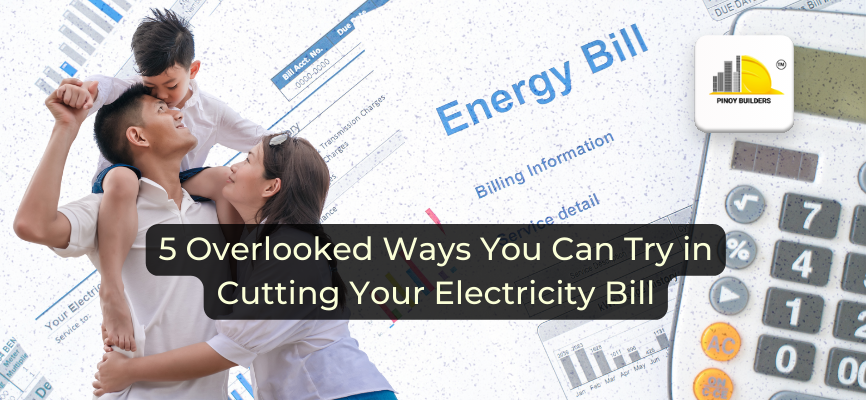Increased energy costs and rising home electric bills are causing concern all across the country. Reducing your energy use both helps the environment and your family’s finances.
Photo Courtesy: Freepik
So how do you lower your power consumption? Save money on your next power bill with these tips and tricks.
1. Wiring

Photo Courtesy: Freepik
Can defective wiring increase my electric bill? This is a question we get a lot.
Yes, it is possible. Wiring issues can cause electrical leakage in several ways. Damaged wiring might cause the connected appliance to overheat, wasting energy.
a. Faulty wiring in HVAC system.
A faulty wiring in your HVAC system is rare but possible. An incorrectly wired thermostat can cause the heating and cooling systems to operate simultaneously. Not only are you consuming almost twice as much electricity as you should, but both systems may run continuously as they compete to reach the desired temperature.
This issue commonly happens when people DIY their new thermostat installation.
b. Old wiring.
An old house is likely to have old wiring running through it. Old wiring can cause lots of additional issues that not only increase your power bill but also put you at risk of a fire. Your old fuses and circuit breakers may not handle the electrical needs of your modern family.
Arc faults in older, neglected homes might cause a spike in electricity usage. If your home is more than a decade old, it’s a good idea to have a certified electrician evaluate your system thoroughly.
c. Electrical meter reading.
Humans are merely human, and they make mistakes. It’s possible that the last time the electrical company came out, they misread your meter. Bring it to your electric company’s attention if the reading on your bill doesn’t match your current meter reading.
RELATED: 5 Latest Innovations in Construction Materials that Will Transform the Industry’s Future
2. LED Lights

Photo Courtesy: Freepik
You’ve probably heard that replacing your light bulbs with LEDs is a good idea. It’s one of those pieces of advice that you’ve probably heard so many times that you’ve lost track of when you first heard it or how long it’s been on your to-do list.
Let’s look at some benefits of switching to LED light bulbs.
a. Energy-efficient
Lighting accounts for roughly 11% of most people’s electricity bills, and switching from halogen light bulbs to energy efficient LEDs can save you up to 80% on your lighting costs.
b. Long lasting
LED light bulbs not only save money in the short term, but they also save money in the long run. A typical LED bulb will live ten times longer than a Halogen bulb. Longer-lasting bulbs require fewer replacements and result in cheaper total lighting costs.
c. Environment-friendly
LED light bulbs consume up to 85% less electricity than traditional light bulbs, with 95% of the energy converted to light and only 5% wasted as heat. This energy efficiency not only saves you money on your bills, but it also decreases your environmental effect. They are also mercury-free, making them more eco-friendly.
3. Natural Lighting

Photo Courtesy: Freepik
Large windows naturally allow the heating and lighting in a room is the primary way in which they help in energy conservation (and the accompanying cost). Let’s discuss it further.
a. Increase natural lighting.
By allowing more natural light into a home, large windows can help save energy and money. A room with few windows may require the use of supplemental lighting even during the day. Because of the increased amount of light that enters a room through large windows, they can turn lights off and power not used to brighten a space in a home.
b. Better Ventilation.
Increased ventilation in a room or building is one benefit of large windows. The effectiveness of ventilation is, of course, determined by the design of large windows. Some windows, however, are not set to be opened.
On the other side, many large windows are opened to allow fresh air into a room.
The increased ventilation options associated with some larger windows can help to reduce the amount of energy used in a home to some extent.
When the weather is mild and pleasant outside, for example, an open larger window can maintain a suitable indoor temperature without the usage of electric fans, air conditioning, or a swamp cooler. This can cause energy and money savings over the course of any given warmer season.
RELATED: Smart Building 101: Construction Tips, Wiring, and Innovative Materials
4. Inverter Technology
An inverter is a device that regulates the frequency of the incoming electrical current to the appliance, resulting in lower energy use. They also make the appliance last longer by reducing the time the engine or compressor is operated.
Appliances like air conditioners, refrigerators, and washing machines use inverter technology. What are the advantages of inverter technology to you and the environment?
a. More efficient.
Inverter appliances, unlike non-inverter appliances, work at a controlled and consistent pace, avoiding wasted energy. When an inverter compressor achieves the correct temperature, it maintains it by keeping a low compressor speed, which uses substantially less energy than non-inverter compressors.
b. Longer life span.
During startup, motors, particularly compressors, are the most strained. Non-inverter compressors can wear out faster than inverter compressors since they start and stop regularly. This is clear in the warranty terms of appliance manufacturers; inverter compressors are covered for 10 years or more. Non-inverters simply have to wait 5 years.
c. Silent operation.
The most noisy aspect of a compressor’s functioning is when it first starts up. Therefore air conditioners and refrigerators go silent for a while before the compressor kicks back into action.
When an inverter compressor starts its cycle, it maintains the temperature by running at a low speed, which produces far less noise than non-inverters.
5. Solar Energy

Photo Courtesy: Freepik
As environmental concerns grow, more of us are having solar panels installed on our homes so that we may generate our own electricity.
Solar panels, also known as photovoltaics (PV), use photovoltaic cells to catch the sun’s energy and convert it to electricity.
Here are its benefits.
a. Save electricity costs.
b. It will reduce your carbon footprint.
RELATED: How to Avoid 6 Common Causes of Electrical Fire
If you consider even half of the measures above, you may save a great deal of energy and significantly reduce your power bills.
CITATIONS:
- Mores, M. (2020, September 29). Inverter 101: What Is Inverter Technology In Appliances? 101 Appliance. Retrieved February 22, 2022, from https://101appliance.com/inverter-technology/
- Electric Ireland. (n.d.). Why you should make the Switch to LED light bulbs. Retrieved February 22, 2022, from https://www.electricireland.ie/news/article/why-you-should-make-the-switch-to-led-light-bulbs
- Arc Angel Electric. (2018, October 9). CAN FAULTY WIRING INCREASE MY ELECTRIC BILL? Retrieved February 22, 2022, from https://arcangelelectric.com/can-faulty-wiring-increase-my-electric-bill/
![]()









